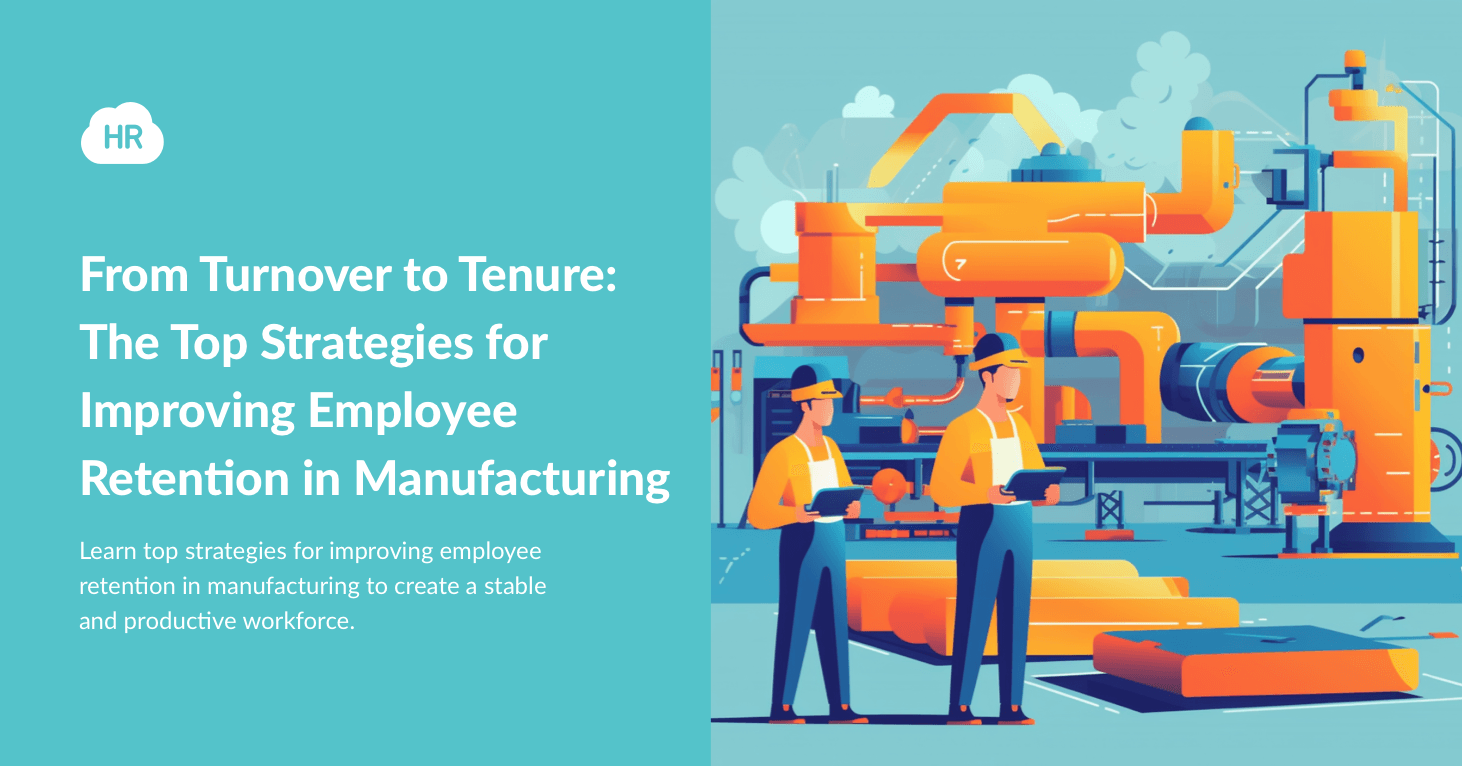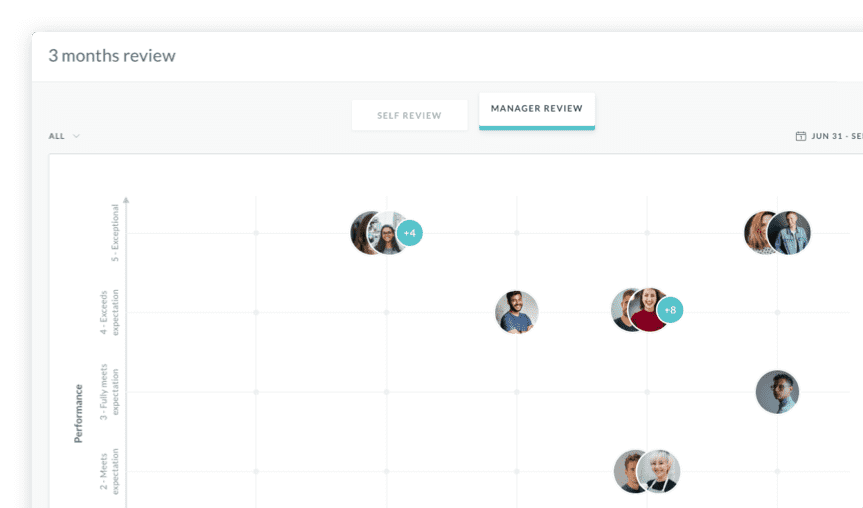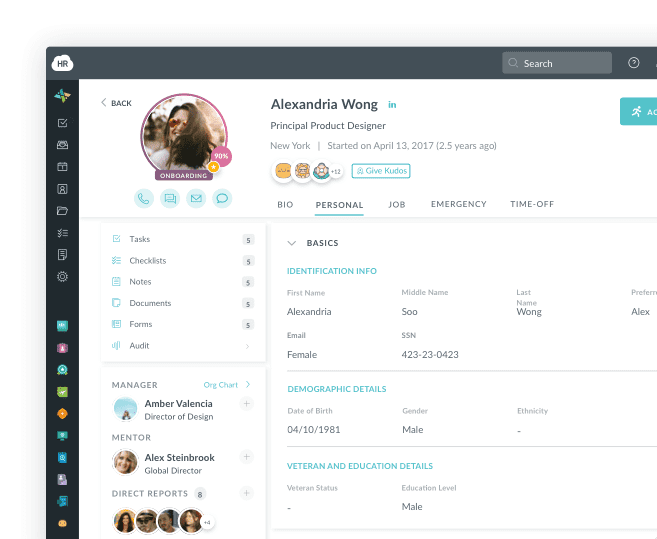From Turnover to Tenure: The Top Strategies for Improving Employee Retention in Manufacturing

Employee retention is a critical factor in the success of any business, particularly in the manufacturing sector. Manufacturing companies face unique challenges with employee retention due to high demand as well as higher competition for skilled workers.
In this article, we will examine the importance of employee retention in manufacturing, the common reasons for higher turnover rates, and top strategies for improving employee retention in this field. Employee retention is essential for manufacturing companies to remain competitive and thrive in today's fast-paced business environment where many companies opt for shifting production capacity to Mexico or similar countries with lower production costs.
Manufacturing companies can become competitive by creating a positive corporate culture through Workmates, an innovative employee engagement application.
The Importance of Employee Retention in Manufacturing
Focusing on employee retention in the manufacturing industry is very important since repeated recruitment and training of new employees leads to financial burden. Furthermore, the chances of high employee turnover rates can adversely affect both the productivity and the quality of the manufactured products. Here are some of the key reasons why employee retention is important in the manufacturing sector:
Cost savings: Hiring and training new employees can be expensive and time-consuming. Retaining skilled and experienced employees can save a company a significant amount of money in recruitment and training costs.
Quality and efficiency: Experienced employees are often more efficient and produce higher quality work than new hires. Using strategies to retain top performers can lead to better production processes, fewer errors, and improved overall performance.
Company culture: Employee turnover can negatively impact company culture, as it can create uncertainty and instability in the workplace. By retaining employees, manufacturing companies can build a strong culture of loyalty and teamwork, which can improve employee morale.
Knowledge transfer: Skilled workers share specialized expertise and knowledge that can be challenging to replace. Retaining these employees ensures that their knowledge and experience remain within the company, which can be crucial for long-term success.
Nature of Work: The manufacturing sector has a unique challenge in retaining employees due to the nature of the work. The work can be physically demanding, repetitive, and monotonous, leading to employee burnout and dissatisfaction. It is therefore key for manufacturing companies to prioritize employee retention to achieve success in their overall business strategy.

Common Reasons for High Turnover in the Manufacturing Industry
There are several reasons for high turnover rates in the manufacturing industry. One of the primary reasons is a lack of engagement and motivation among employees. When employees feel disconnected from their work or do not feel valued, they are more likely to look for employment elsewhere.
Another reason for high turnover rates is the lack of opportunities for growth and development. Employees who feel they have limited opportunities for career growth are more likely to leave. Additional factors that contribute to high turnover rates include poor compensation, inadequate work-life balance, and a negative work environment.
Average Employee Turnover Rates by Industry
By the end of 2021, as the pandemic abated, organizations worked towards hybrid work setups, telecommuting, and safe health protocols. These improvements resulted in decreased rate of turnover. However, the turnover rate accounts for every worker that left in the same year due to retirement, termination, or discharge. Upon closer inspection of voluntary resignations, however, 2021 boasts a record-breaking figure. An astounding 47.4 million individuals relinquished their jobs over the course of the year, a figure that surpasses previous records. The average turnover rate was 47.2 and manufacturing in specific recorded a 39.9% turnover rate in 2021.
According to the 2020 Retention Report from Work Institute, the resignation of every employee could lead to losses that account for one-third of their annual salary. Furthermore, high turnover rates can dampen the morale of the remaining staff, compounding the issue at hand.
Manufacturing is among the top five industries with the highest turnover rates and here are some of the reasons:
-
Workers in this industry were unable to work from home like in other industries.
-
Workers continued going into the workplace to perform demanding work during stressful times.
Benefits of Higher Employee Retention
Higher employee retention in manufacturing can have numerous benefits for the company. Some potential benefits include increased productivity, lower absenteeism rates, cost savings, and a more positive work environment.
When employees stay with a company for a longer period, they become more efficient and effective in their jobs. This increased efficiency can lead to increased productivity and cost savings for the company. Additionally, when employees are engaged, it can create a positive work environment, improved morale and better customer satisfaction.
Social Intranet Software that Encourages Employee Communication

-
Conducting Employee Engagement Surveys
One way to improve employee retention is to conduct an employee engagement survey. This survey can help identify areas where employees feel disengaged, undervalued, or unappreciated. The survey can also provide insight into what motivates employees and what they value in their work. Once the survey is complete, management can analyze the results and create a plan to address the areas of concern. This include implementing new policies to improve employee engagement, employee recognition and appreciation.
Using Workmates to conduct employee engagement surveys can have several benefits, including:
Familiarity: Workmates is a right solution that is in tune with the organization's employees, culture, and work environment. This employee engagement tool makes it easier for organizations to connect with employees and gain their trust, which can result in more honest and accurate feedback.
Cost-effective: Using Workmates, to conduct surveys is more cost-effective than hiring an external consultant. This can be especially beneficial for smaller manufacturing organizations with limited budgets.
Timely feedback: Workmates can gather feedback quickly and efficiently, and help in addressing any issues or concerns raised by employees in a timely manner.
Better response rates: Employees are more likely to participate in an anonymous survey through a familiar software such as Workmates. This can result in higher response rates and more representative data.
Actionable insights: Workmates can use the knowledge of the organization to interpret the survey results and provide actionable insights to management. This can help the organization identify areas for improvement and develop targeted strategies to enhance employee engagement and satisfaction.

-
Using Employee Engagement Software to Improve Retention
Another effective way to improve employee retention is to use employee engagement software. This software can provide real-time feedback on employee engagement levels and can help identify areas where employees are not properly engaged.
The software can also provide tools for managers to create action plans and address areas of concern. Workmates is an all-in-one Employee Engagement Software (EES) solution that offers effective employee engagement and surveys. It offers several benefits, including:
Increased adoption: Workmates can help to promote and drive adoption of the EES among employees. As employees will already be familiar with the software, they can explain the benefits of the software to their colleagues and encourage participation.
Better data accuracy: Workmates is an effective employee engagement portal that can ensure the accuracy of the data collected as well as monitor responses. This can result in more reliable data that can be used to make informed decisions.
Improved communication: Workmates can use the EES to facilitate communication between the employees of a company and its management. This can help to build trust and transparency, as well as create a more collaborative work environment.
Personalized insights: Workmates is an employee engagement platform that provide personalized insights to employees based on their responses. This can help employees to better understand their strengths and weaknesses, and identify areas for improvement.
Enhanced engagement: Using an EES can help to increase employee engagement by providing opportunities for feedback, recognition, and development. Workmates is a popular Employee engagement survey tool that can facilitate this process by encouraging participation and promoting the benefits of the software.

-
Creating a Culture of Appreciation and Recognition
Creating a culture of appreciation and recognition can significantly improve employee retention. Organizations that make employees feel valued and appreciated can achieve long-term success. This can include recognizing employees for a job well done, providing regular feedback, and employee appreciation, and offering opportunities for growth and development.
Additionally, creating a culture of appreciation and recognition can lead to a positive work environment and increased employee morale. This can lead to higher productivity and job satisfaction.
-
Offering Competitive Compensation and Benefits
Providing reasonable yet competitive benefits and compensation is also essential for improving employee retention. Employees who feel they are being compensated fairly and have access to quality benefits are more likely to stay with a company long-term.
This can include offering competitive salaries, health insurance, retirement plans, and other benefits. It is essential for manufacturing companies to regularly review their compensation and benefits packages and make adjustments as necessary to remain competitive.
-
Providing Opportunities for Professional Development and Growth
Providing opportunities for professional development and growth is another effective way to improve employee retention. Employees who feel they have opportunities to learn and grow within their roles are more likely to stay with a company long-term.
This can include providing training and development programs, offering mentorship opportunities, and providing opportunities for advancement within the company. It is essential for manufacturing companies to invest in their employees' growth and development to retain manufacturing workers and top talent.
Take Advantage of E-Forms, Time-Off Tracking, and Other Powerful Features to Help Drive Your Bussines
Learn More about HRMS
-
Creating a Positive Work Environment and Company Culture
Creating a positive work environment and company culture is essential for improving employee retention. Employees who feel they are part of a positive work environment and nurturing work culture are more likely to stay with a company long-term.
This can include fostering open communication, creating a supportive and collaborative work environment, and promoting work-life balance. Additionally, creating a positive work environment and company culture can reduce high turnover rates, and lead to increased employee morale and productivity.
Conclusion - Implementing a Comprehensive Strategy for Employee Retention in Manufacturing
In conclusion, employee retention is critical in the manufacturing industry. High turnover rates can lead to negative consequences such as loss of skilled labor, decreased productivity, and increased costs associated with hiring and training new employees. Manufacturing companies that prioritize employee retention are more likely to have a skilled and experienced workforce, increased productivity, and a positive company culture. By implementing the strategies outlined in this article, manufacturing companies can attract and retain top talent in the manufacturing industry, leading to increased productivity, cost savings, and a more positive work environment.
Using Workmates, a quality recognition software to conduct employee engagement surveys can be a valuable tool for organizations looking to improve employee satisfaction, retention, and productivity. Overall, using Workmates Employee Engagement Software from HR Cloud helps organizations to enhance employee engagement, productivity, and retention through employee recognition. By leveraging the expertise and familiarity of Workmates, organizations can ensure the success of their EES implementation and maximize the benefits for both employees and management.
Author Bio:
This article is written by a marketing team member at HR Cloud. HR Cloud is a leading provider of proven HR solutions, including recruiting, onboarding, employee communications & engagement, and rewards & recognition. Our user-friendly software increases employee productivity, delivers time and cost savings, and minimizes compliance risk.
Keep Reading
Balancing Technology and the Human Touch in Employee Engagement
Companies are taking employee engagement very seriously because it is one of the ways of
Building Strong Teams: The Power of Team Bonding Exercises
Never overestimate the power of collaboration as a core element of effective team


